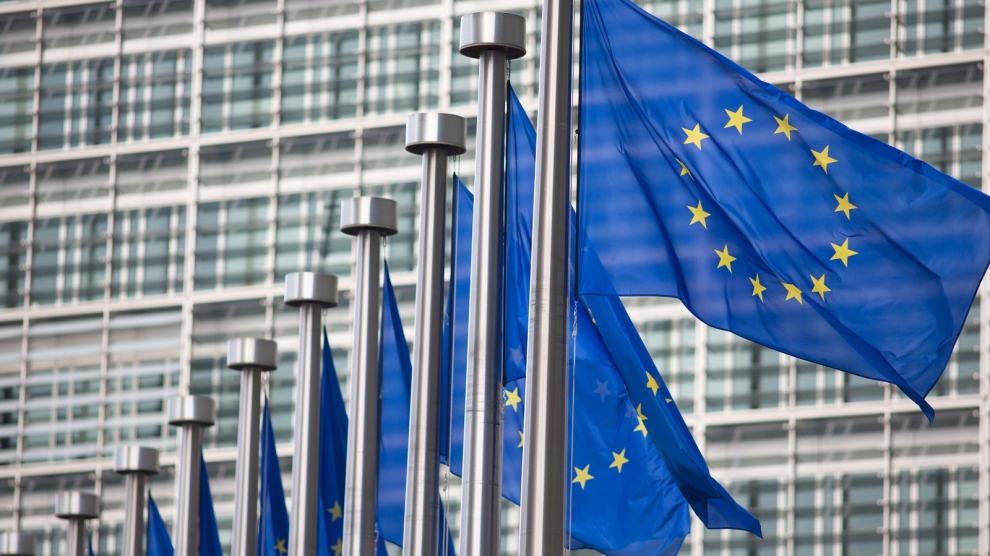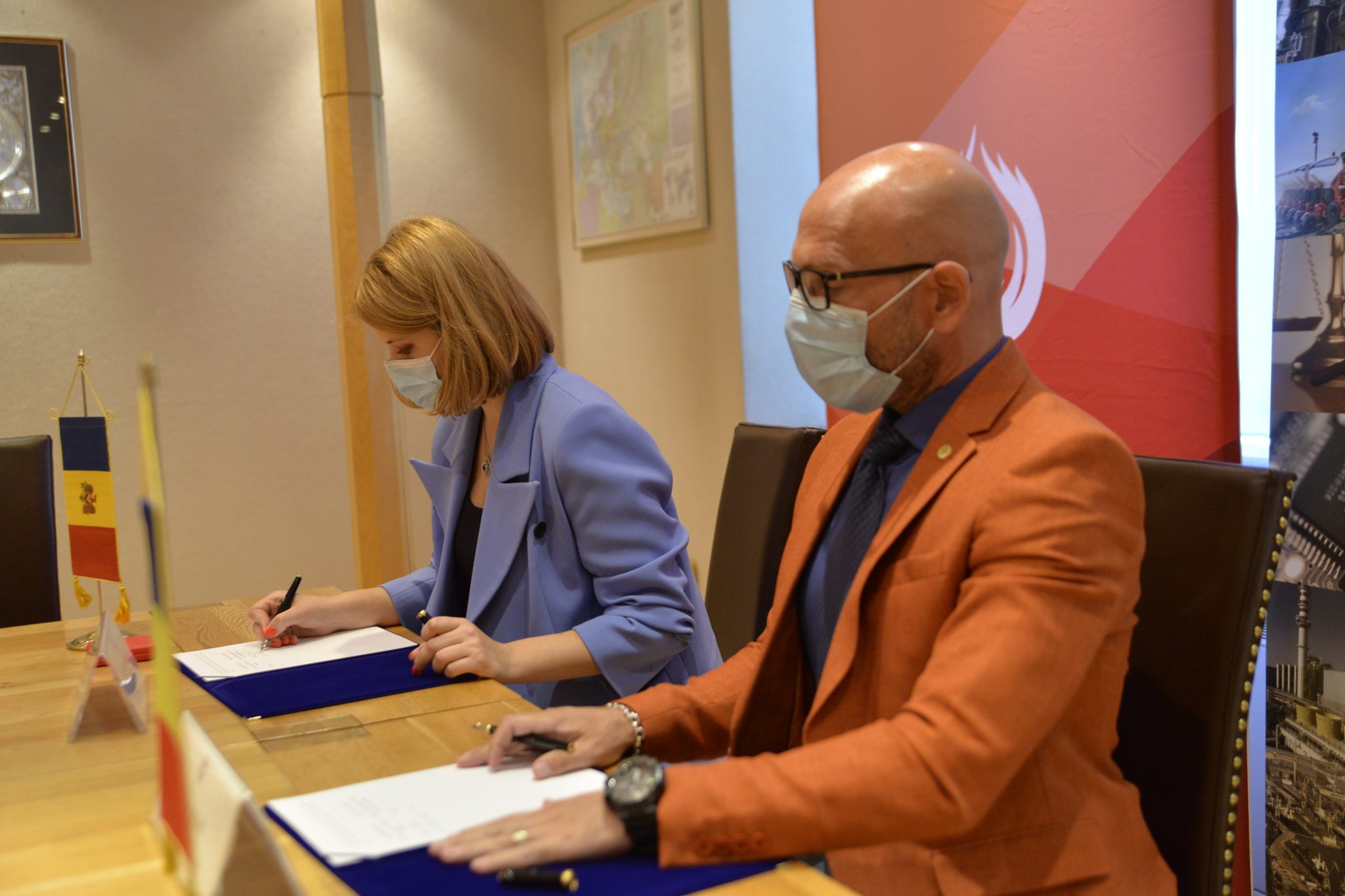Economy
Financial crisis may force Moscow to make concessions to non-russians
Reading Time: 4 minutesDespite the human suffering it is bringing, the current financial crisis may force Moscow to make concessions to non-Russian groups because in the past, the Russian government – tsarist, Soviet and po
by Paul Goble
Kuressaare, November 18 – Despite the human suffering it is bringing, the current financial crisis may force Moscow to make concessions to non-Russian groups because in the past, the Russian government – tsarist, Soviet and post-Soviet — has done so "only when the state has serious problems," according to a senior Tatar politician.
In an interview with Rosbaltvolga.ru, Razil’ Valeyev, who chairs the nationality policy committee in the State Council of the Republic of Tatarstan, pointed out that Moscow created the non-Russian republics after the 1917 revolution and opened "hundreds" of non-Russian language newspapers during World War II (www.rosbaltvolga.ru/2008/11/17/542241.html).
Consequently, Valeyev argued, one should not exclude the possibility that as the economic crisis deepens, it will lead the central government to address some of the problems of the non-Russians in the country, perhaps in the first instance reversing what he calls the "unconstitutional" elimination of non-Russian courses from required educational programs.
If the law goes into force, Regions and republics would still be allowed to offer non-Russian language and local history courses, but they would no longer be able to require them. And consequently, some students and their parents would thus be inclined to choose to study other courses instead, something that would strike a blow at many non-Russian groups.
"The exclusion of the national-regional component from the federal education standards [scheduled to take place in 2009] directly contradicts the Russian Constitution," he said. "And if we do not follow the provisions of our own constitution as any state based on law does, then what kind of a country are we?"
Valeyev pointed out that Tatarstan has been fighting this step for several years and not long ago sent an appeal not only to Moscow but to all the federal subjects asking that it be reversed as unconstitutional. So far, he says, 21 other subjects – including some Russian ones — support Tatarstan’s position, but until recently, it seemed unlikely Moscow would change course.
One of the reasons the Russian government has adopted this policy, the Tatar State Council committee chairman continues, is that "empire-forming peoples cannot understand the problems of other peoples." While there are exceptions, of course, "the majority of government officials are not among them."
Asked whether he was fighting against globalization, Valeyev said that "globalization is affecting everyone and not just the Tatars," and many Tatars now send their children to Russian language schools so that they can pursue the careers that such educations offer in the country as a whole.
Even more will do so if non-Russian subjects become optional because they will see that Moscow has a negative attitude toward national education and "understand that if they do not change, their children will not become part of contemporary realities and participate in the state’s mentality."
There are other reasons parents are making these decisions. Many Tatar schools were opened only a few years ago and often lack the facilities Russian-language schools there have. That has made the Turkic-Tatar lycees that Ankara opened in the republic far more important than they otherwise would be, lycees that Moscow unfortunately is trying to close.
Asked to respond to suggestions that Tatar national identity is too focused on the past rather than the future, Valeyev said that peoples like the Tatars who have been deprived of statehood and who fear they may not recover it naturally look back to the time when they had it, especially if they have been denied the chance to do so as the Tatars were in Soviet times.
Valeyev said that the Tatars do not want the Russian Federation to fall apart but rather to be strengthened, however much Russian nationalists think otherwise, but at the same time, he noted, the Tatars want Moscow to respect their constitutional rights, something the center is not always doing.
But "if Russia wants to preserve its future and to be strengthened, then it must turn particular attention "to the issues the Tatars raise. "We are not going to go anywhere, we do not have a second state." And consequently, Tatars and Russians must cooperate if they are to have a good future together.
At present, Valeyev stressed, Tatarstan is "resolving many questions more or less normally. We are concerned most of all about the status of Tatars living beyond the borders of the republic [where most ethnic Tatars live and] who have enormous problems in the sphere of preserving language and culture."
"If Russia were to adopt a new, democratic conception of nationality policy … and the laws and decrees needed for its realization, then there would not be any special problems" in the relationship between Moscow and Kazan, Valeyev said, adding that "I have not lost hope that we despite everything will come to that."
"Russia too ought to have an instinct for self-preservation," he continued. If, however, it is completely lost, then additional complications will appear. But the process of the rebirth of national consciousness is not something that happens over night." Thus, there is time, but it is not unlimited, perhaps no more than "20 or 30 years."
Russia needs to become what it is, the common home of Slavic and Turkic peoples, he argued in conclusion. And he said that was not as impossible as it might seem: "Who could have thought that the Soviet Union would fall apart and in its place would arise independent states – Kyrgyzstan, Kazakhstan, Turkmenistan and so on, not to mention Abkhazia and South Ossetia."
—-
Paul A. Goble is an American analyst, writer and columnist with expertise on Russia, Eurasia, public diplomacy and international broadcasting. Goble publishes his articles on his blog "Window on Eurasia" (windowoneurasia.blogspot.com).
Economy
Moldova will receive a disbursement of 36 million euros as part of the the Economic Recovery Plan

This week, the European Commission approved the disbursement of 36 million euros in grant money for the Republic of Moldova. The announcement was made by Deputy Director-General for Neighbourhood Policy and Enlargement Negotiations at the European Commission, Katarina Mathernova, who paid an official visit to the Republic of Moldova between September 13-15, together with Managing Director for Russia, Eastern Partnership, Central Asia, Regional cooperation and OSCE, at the European External Action Service, Michael Siebert.
The EU officials had meetings with President Maia Sandu, Minister of Foreign Affairs and European Integration, Nicu Popescu, Speaker of Parliament, Igor Grosu, Prime Minister of the country, Natalia Gavrilita, as well as key representatives of Government, international financial institutions and the civil society, according to a press release issued by the Delegation of the European Union to the Republic of Moldova.
Beside such topics as the EU-Moldova relations and prospects, the priorities of the reform agenda of the new Moldovan Government, preparations for the Eastern Partnership Summit at the end of the year and the Transnistrian conflict settlement, the officials also discussed the EU assistance in support of reforms and the Economic Recovery Plan for Moldova, which was announced in June with a total EU support of 600 million euros over the next 3 years.
“The first measures under the Economic Recovery Plan will shortly materialize, with the expected disbursement of 36 million euros in grant money under budget support programmes to support the authorities’ efforts to fight against the consequences of the pandemic. Moldova can count on EU’s assistance on its path to reforms and to recovery, bringing tangible results to citizens,” Katarina Mathernova stated.
The plan is based on assistance provided by the European Union through various bilateral and regional instruments, aiming to mobilize the funds in the form of grants, loans, guarantees and macro-financial assistance.
“The Economic Recovery Plan for the Republic of Moldova involves much more, not just this financial support provided immediately. It must help digital transformation, strengthen infrastructure, energy efficiency, education and support small and medium-sized enterprises,” the EU official also said.
As Prime Minister Natalia Gavrilita informed, “The Economic Recovery Plan and the 5 flagship initiatives for Moldova in the Eastern Partnership will directly contribute to the reform and consolidation of institutions, stimulate long-term socio-economic development, bring direct benefits to citizens, and unleash new economic opportunities through promoting the green agenda and digitization. Small and medium-sized enterprises (SMEs) have been hit hard by the crisis. Promoting and diversifying access to finance and reducing collateral requirements will be essential in supporting economic operators. We are grateful to the EU partners who will launch two programs to support 50 000 independent Moldovan SMEs to adapt to the new conditions.”
President of the Republic of Moldova, Maia Sandu, welcomed the decision of the European Union to disburse about 745 million lei in grant money, as the official page of the President’s Office announced. “EU support comes after a long period of freezing of European assistance, caused by former governments. We managed to relaunch the political dialogue with the European Union and resume financial assistance. The Republic of Moldova is gradually regaining the trust of its strategic partners. This European support is also a signal of encouragement for the new Government team in its commitment to clean up the institutions, fight corruption and launch development programs in the country,” said Maia Sandu.
Photo: unknown
Economy
Romania and Moldova signed a partnership memorandum pledging to cooperate in promoting their wines

The Chamber of Commerce and Industry of Romania (CCIR) and the National Office for Vine and Wine (NOVW) of the Republic of Moldova signed, last week, a memorandum of cooperation on organizing joint promotional activities in the markets of common interest, as the CCIR announced.
China, Japan or the USA are just some of the markets targeted by the Romanian and Moldovan institutions. The memorandum also involves advertising activities for wines from common indigenous varieties, promoting the oeno-tourist region, developing a tourist route in the two states, exchange of experience, study visits, and mutual support in identifying new export opportunities. “We are very confident that this collaboration between our organizations will lead to sustainable economic growth and a higher degree of well-being among Moldovans and Romanians,” claimed Deputy Secretary-General of CCIR, Bogdan Visan.
On the other hand, Director of the NOVW, Cristina Frolov, declared that no open competition with Romania is aimed at the governmental level of the Republic of Moldova. “This request for collaboration is a consequence of the partnership principle. Romania imports 10-12% of the wine it consumes, and we want to take more from this import quota. Every year, the Romanian market grows by approximately 2.8%, as it happened in 2020, and we are interested in taking a maximum share of this percentage of imported wines without entering into direct competition with the Romanian producer,” the Moldovan official said. She also mentioned that Moldova aims at increasing the market share of wine production by at least 50% compared to 2020, and the number of producers present on the Romanian market – by at least 40%.

Source: ccir.ro
**
According to the data of the Romanian National Trade Register Office, the total value of Romania-Moldova trade was 1.7 billion euros at the end of last year and over 805 million euros at the end of May 2021. In July 2021, there were 6 522 companies from the Republic of Moldova in Romania, with a total capital value of 45.9 million euros.
The data of Moldova’s National Office of Vine and Wine showed that, in the first 7 months of 2021, the total quantity of bottled wine was about 27 million litres (registering an increase of 10% as compared to the same period last year), with a value of more than one billion lei, which is 32% more than the same period last year. Moldovan wines were awarded 956 medals at 32 international competitions in 2020.
Photo: ccir.ro
Economy
Moldova’s hope to be a top walnut exporter and its main difficulties

The Republic of Moldova has perfect weather conditions for growing walnut trees, that creating a great potential of walnut production and trade, especially on international markets, where the demand is way higher than the product’s supply. National and international experts believe that the country’s walnut production industry is on the verge of important transformations, which could lead to increased yields, quality and competitiveness worldwide.
According to authorities, Moldova exports 34-35 thousand tons of walnuts in shell, which is about 7% of the total export of fruit and 5% of the total export of horticultural products. The export value is assessed as being $120 million, that being 57-60% of the total fruit export value and about 50% of horticultural export value. Most of walnut crops are exported to the EU countries, such as France, Germany, the Netherlands, Romania and Austria. The country’s exports were among the world’s top 10 when it comes to the highest dollar value of the product during 2020.
Viorel Gherciu, Minister of Agriculture and Food Industry, pointed out that the production in the domestic walnut industry has increased by 55% in the last five years, which ranks Moldova among the main producers in the world.
“The biggest opportunity for this industry is that we are in the geographical proximity of the largest walnut import area in the world, which is the European Union, with almost 40% of total imports in the world. We are on the EU border, with privileged relations, with an Association Agreement. We already enjoy a good relationship in working with European importers, they trust our processors. A very close collaboration has been created and this is, in fact, the guarantee for those who invest in the area,” claimed the president of the Walnut Producers Association, Oleg Tirsina.
The data provided by the National Bureau of Statistics show that there are 34.7 thousand hectares of walnut plantations in the country. 20.90 hectares are represented by orchards. 75% of planted orchards are formed of old varieties trees. 30-35% of the exported production comes from orchards, the rest comes from individual farmers and plantations along the roads. This means that the quality of walnut production is not at its maximum potential. Developing commercial plantations through orchards modernization and extension of walnut varieties would provide double yield and better quality, experts say.
Governmental support in the form of subsidizing solutions, foreign investments and credit options are indispensable for the industry development. One of the financing options is the credit line of the European Investment Bank Project. Since 2016, 15 producers and processors of nuts, almonds and hazelnuts have benefited from these loans with the total amount of investments worth 8.7 million euros. A further extension of the project would provide another 60 million euros for the modernization of the horticultural sector in general and for harvesting organic walnuts in particular.
Photo: heymoldova.com





















